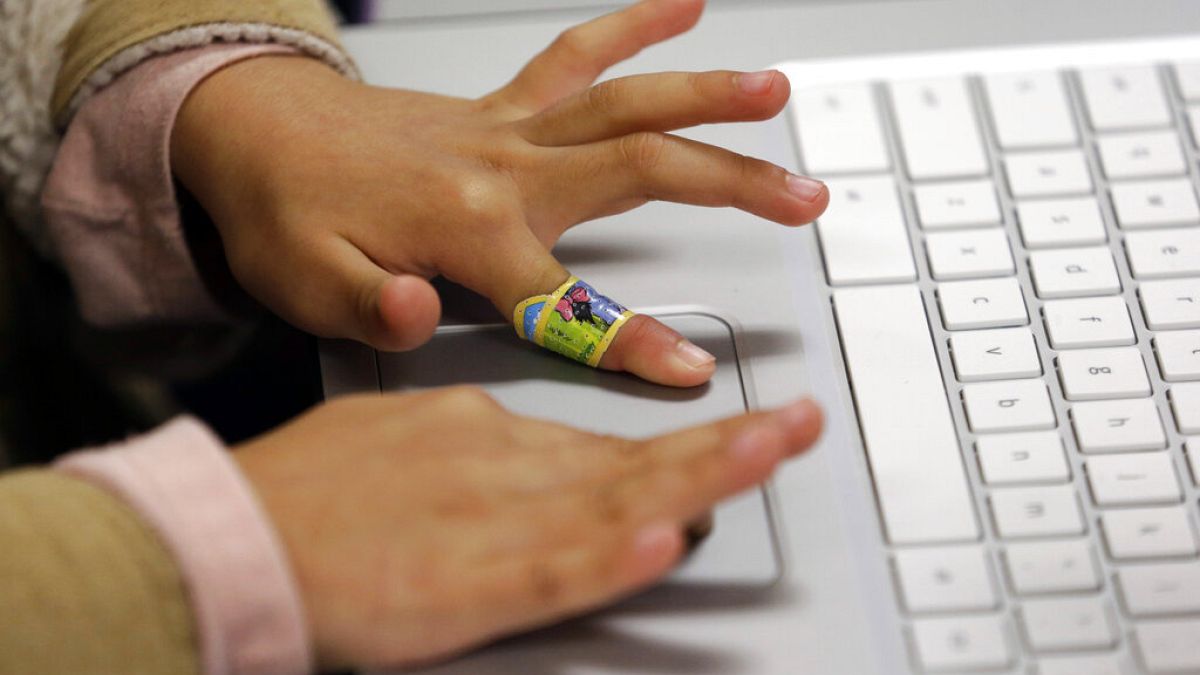Links sharing explicit content of underage children have been spreading in the last year. Here’s what we know about the worst year in history for child sexual abuse imagery.
There was an 8 per cent increase in child sexual abuse imagery in 2023 compared to the previous year, making it the worst in history, according to a new report from the UK-based Internet Watch Foundation (IWF).
The charity, which tracks and takes down pages with explicit content featuring children, found over 270,000 web pages last year, roughly one every two minutes, with some featuring thousands of images or videos.
The report also found that Germany’s .de domain was targeted by criminals advertising “the most extreme types of child sexual abuse” in 2023.
With over 3,000 addresses, the domain is now host to a quarter of all commercial websites advertising and selling child sexual abuse material.
Pyramid schemes of child abuse content
The IWF authors are tracking the steady increase of online pyramid schemes “where the ‘commodity’ is imagery showing the sexual abuse of children”, a trend which uses “viral marketing” techniques and which they first came across in 2022.
In this “invite child abuse pyramid” (ICAP), criminals use regular websites like social media, chat forums and image boards to link to commercial platforms.
“People are incentivised to share links to child sexual abuse sites far and wide (and) are then ‘rewarded’ when others click on the links and ultimately download or watch the criminal material,” according to the report.
Anyone can stumble on explicit content featuring underage children, meaning that “people are unsuspectingly seeing very young children being penetrated, involved in sexual activities with animals or being tortured for someone’s sexual pleasure”.
“Our findings show how quickly a domain can become the preferred choice of organised criminals seeking to keep their recognised ‘brand’ of child sexual abuse online,” said the IWF CEO Susie Hargreaves OBE about the rise of commercial websites on German domains.
This is the first time in the last three years that the German domain has been used for such websites.
Self-generated and AI content
The report's authors also highlighted the rise of “self-generated” images, which refers to content created using handheld devices or webcams. According to the data, half of these images are taken from bedrooms and 67 per cent include three to six-year-olds posing nude.
“These are very young children, supposedly in the safety of their own bedrooms, very likely unaware that the activities they are being coerced into doing are being recorded and saved and ultimately shared multiple times on the internet,” said the report.
Together with AI-generated images, tracking this type of content has added a layer of complexity to the work of analysts.
“On 24 May 2023, literally overnight, the rules of engagement changed when a member of the team uncovered a curated collection of criminal AI images of child sexual abuse. In that moment we were unwillingly inducted into a new reality,” IWF Hotline Director, Chris Hughes said in a statement.
The UK is one of the few countries in the world where it’s illegal to post child sexual abuse imagery that is either a drawing or AI-generated. The IWF found 280 instances of such content in 2023, but none of it was hosted in the UK.
The IWF calls on the EU to prevent this content by making the distribution of child sexual abuse material “a political priority” for the next legislature.
The charity currently uses a bespoke tool to assess content and mark it with a “digital fingerprint”, making it impossible for criminals to upload it again on the Internet.



